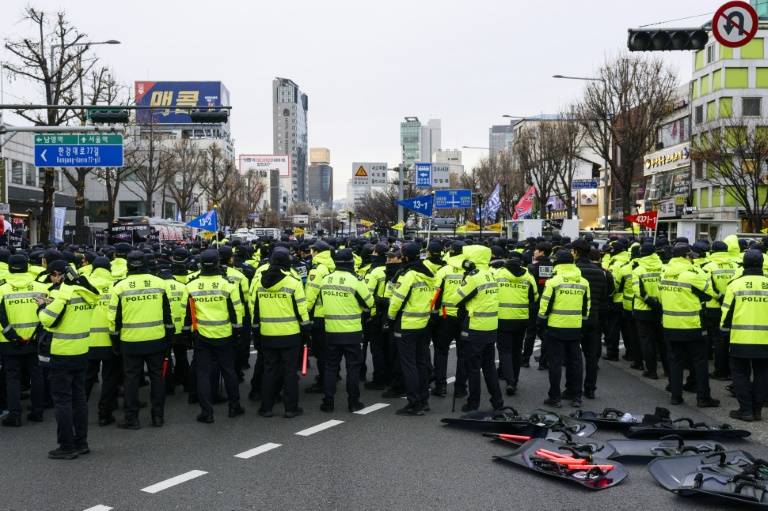Labour Minister Steven MacKinnon is sending the labour dispute between Canada Post and the Canadian Union of Postal Workers (CUPW) to the Canada Industrial Relations Board.
MacKinnon said Friday that if the board determines negotiations between the parties are at an impasse, it has been directed to order striking CUPW members back to work under the existing collective agreement until May 22, 2025.
“Canadians are rightly fed up,” with the strike, the labour minister said.
“The board is an independent entity. It will reach its conclusions, I hope, quickly, and if it agrees with the observations that I’ve shared with you today, then [it] would order a resumption of activities of Canada Post that could happen as early as early next week.”
The strike has lasted more than four weeks. MacKinnon said Friday that a federal mediator says negotiations are going in the wrong direction.
“I am making this decision to protect the interests of all Canadians,” MacKinnon said. “It is not a decision I take lightly, but in this situation, it is the right one.”
The labour minister said an industrial inquiry commission will be established to find out why negotiations between the parties have failed to deliver a resolution.
The commission has been directed to deliver a report by May 15 to the minister, Canada Post and CUPW providing suggestions for how to bring the parties together.
Labour Minister Steven MacKinnon announces he’s asking the Canadian Industrial Relations Board to order operations at Canada Post to resume if they agree that the contract dispute is at an impasse. MacKinnon also says he is tapping an independent commissioner to examine the structure of the corporation along with the collective agreement and produce recommendations ‘on the way forward.’
MacKinnon said he has appointed labour negotiator and former University of Ottawa law professor William Kaplan to the role of commissioner.
The labour minister said Kaplan was chosen to preside over the commission because he is “an outside, independent, experienced veteran arbitrator” with the skills to get to the root of the dispute and propose solutions.
“The inquiry will have a broad scope as it will examine the entire structure of Canada Post, from both a customer and business model standpoint,” MacKinnon said.
Union denounces minister’s decision
The CUPW issued a statement denouncing MacKinnon’s move “in the strongest terms” and calling the decision an “assault on our constitutionally protected right to collectively bargain and to strike.”
The union said that it is reviewing the labour minister’s order and is considering its options moving forward.
“This is a rapidly developing situation, and we have not had time to review all of the details,” the statement said.
“What we do know is that postal workers are being forced to return to work without new negotiated collective agreements in place” — a reference to the fact that the board could order workers back on the job if it believes the two sides are deadlocked.

The strike began Nov. 15. Federal mediation was put on hold Nov. 27 after mediators concluded that the sides were too far apart.
CUPW negotiators met with the Crown corporation on Monday — the first time the two sides have met since the Nov. 27 suspension.
Outlining separate demands for its urban and rural and suburban mail carriers, the union said earlier this week that it made the following combined demands for both groups:
- Wage increases of nine per cent, four per cent, three per cent and three per cent over four years.
- A cost-of-living allowance.
- Ten medical days in addition to seven days of personal leave.
- An increase in short-term disability payments to 80 per cent of regular wages.
- Improved rights for temporary workers and on-call relief employees.
CUPW national president Jan Simpson said the union has not heard back from Canada Post about their revised demands. She accused the Crown corporation of dragging its heels so the federal government would step in.
“Right now we’re having discussions internally on what we are going to do. But right now the members are still holding the picket lines strong because they are still fighting for fair wages, to retire with dignity and improve health and safety,” Simpson told CBC News Friday.
“We’re not just fighting for us. We are fighting for the next generation of workers within this country.”
In a statement shared with CBC News, a spokesperson for Canada Post said the Crown corporation is “extremely disappointed” with the union’s latest offer.
“In the last few weeks, Canada Post has made several important moves to close the gap and reach negotiated agreements, but the union has reverted to their previous positions or increased their demands,” the statement read.
Watch | Postal workers’ union president calls federal intervention ‘an attack on all labour’:
Jan Simpson, national president of the Canadian Union of Postal Workers (CUPW), says the union is ‘not happy’ with the federal labour minister’s move to refer the dispute between CUPW and Canada Post to the Canadian Industrial Relations Board.
The Crown corporation cited its dire financial circumstances, which it says have been made worse by the 55,000-member strike.
In a media statement, Canada Post said Friday that it is reviewing MacKinnon’s announcement and it “will take all appropriate steps to support that process as quickly as possible, given the direction provided to us by the minister.”
“Our commitment has always been to reach negotiated agreements … that would help us better serve the changing needs of Canadians and provide good jobs to those who provide the service,” the statement said.
“We remain committed to doing so within this new process while also meeting the postal needs of Canadians.”
The Canadian Federation of Independent Business (CFIB) issued a statement saying it is “relieved” by the federal government’s decision and the prospect that the mail could be moving again by early next week.
“This will be too late to salvage any of the Christmas holiday season for small businesses,” said CFIB president Dan Kelly.
“But the temporary order will help businesses that are desperately waiting for cheque-based payments from other business customers.”
The CFIB estimates that small firms have been losing $100 million per day, a total of $1.6 billion, since the strike began.







